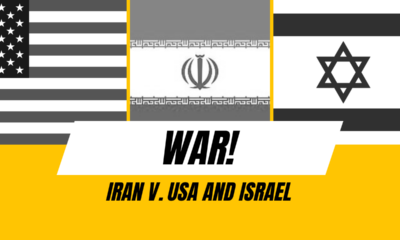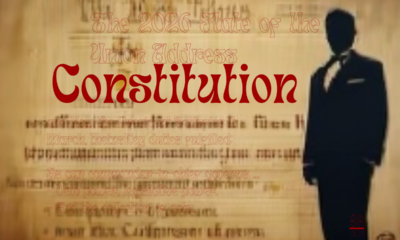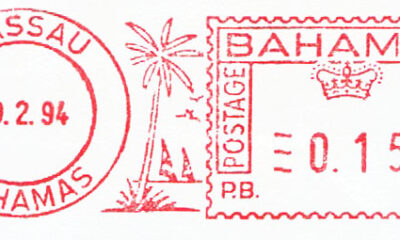Executive
Strategic doctrine for Israel?

Jerusalem seems to have no strategic doctrine. She thus repeatedly ignores the teaching of Shakespeare in King Lear: “He’s mad that trusts in the tameness of a wolf.”
Examples of good and bad strategic doctrine
This article draws primarily on the knowledge articulated in Philip Bobbitt, Terror and Consent: The Wars for the Twenty-First Century (2008).
Bobbitt, a Professor of Jurisprudence who holds a chair at Columbia University, served as a senior adviser at the White House, the Senate, and the State Department in both Democratic and Republican administrations, and has held senior posts at the National Security Council.
Bobbitt is fond of quoting Shakespeare and does to magnify various teachings of his book. Although his soft view of Islam is questionable and un-Shakespearean, there is much in Terror and Consent that is instructive and highly significant in this period of Islamic Jihad and Imperialism. Much that he says might even enlighten and fortify Israel’s political and military echelons. Accordingly, with minimum comment on my part, I am going to let Bobbitt speak for himself by selecting and connecting those passages of his book most relevant to the title of this article on strategic doctrine.
We announce [strategic] rules for ourselves in order to influence others, and to provide guidance to our own officials, and to inform the public. (437)
Consistent therewith, Prince Clemens Von Metternich (1773-1859), the subject of Henry Kissinger’s doctoral dissertation, said that “When called upon to handle important matters, the statesman must tackle them vigorously. For this to happen it is necessary that the course decided upon should not only be clear in the eyes of the Cabinet, but should also be made clear in the eyes of the public.”
This is why strategic doctrine is necessary and needed in Israel, where the people are thoroughly confused about the course of the Netanyahu Government – and Israel is a little more democratic than Metternich’s Austria, where that famous diplomat studied philosophy at the University of Strasburg and, and law and diplomacy at Mainz.
Principles of strategic doctrine
 Returning to Bobbitt, “Doctrines like the Monroe Doctrine,” he says, “are supposed to establish neutral, general principles.” By “doctrine” he means “a statement of official government policy in foreign affairs and military strategy.” The term “neutral” describes a proposition that will guide behavior in the future, regardless of who is president or what party is in power. (437-438).
Returning to Bobbitt, “Doctrines like the Monroe Doctrine,” he says, “are supposed to establish neutral, general principles.” By “doctrine” he means “a statement of official government policy in foreign affairs and military strategy.” The term “neutral” describes a proposition that will guide behavior in the future, regardless of who is president or what party is in power. (437-438).
Alas, this appears to be impossible in the capricious and fractious character of Israeli politics, where the duration of a Government is rather transient, and where the Prime Minister’s cabinet has five or more rival parties whose minds are so much concerned about the next election. This makes Bobbitt all the more relevant.
Bobbitt proceeds to contrast the Weinberger Doctrine named for Casper Weinberger who was the Secretary of Defense under President Reagan. This doctrine sets six criteria for U.S. intervention abroad:
- Vital American interests must be at stake.
- There must be a clear intention to seek military victory.
- The goals must be clearly defined and supported by Congress.
- Public must be well informed and confidence must remain steady.
- A continual reassessment of the forces employed and their objectives must take place.
- Force must be a last resort (439).
On this last criterion Bobbitt also wants strategic doctrine to specify “on what basis force should be used” – but which, in the opinion of the present writer, is surely a matter of judgment, and not of general rules. I do not see how one can start from a general principle and, solely by means of logical deduction, take a decision in a particular case, which is bound to involve contingencies and unknowns.
Nevertheless, the Weinberger-Power Doctrine is most instructive. Bobbitt points out that “The U.S. needs a strategic doctrine because it must confront a period of … uncertainty, a period not only of unpredictability but also of importance and … of opportunity. Without a Strategic Doctrine, it is almost impossible to marshal the legitimacy abroad and domestically to sustain a course of action that contemplates the use of force.” (439, Bobbitt’s emphasis).
Preemption
This said, let’s examine what Bobbitt has to say about “Preemption,” which is surely the most vital component of Strategic Doctrine, especially in this era of “Weapons of Mass Destruction” (WMD) and supersonic ballistic missiles. Only the following part need be mentioned:
Proscriptively [the Weinberger-Power Doctrine] claims that certain states, owing to their unlawful character [because they threaten the world’s peace], do not have the sovereign right to arm themselves (or their terrorist surrogates) with weapons of mass destruction or to support terrorists; that the U.S. has the lawful right to act preemptively to prevent such threatening proliferation and to destroy terrorists wherever they may be found, and that if international organizations do not act to prevent such threats from coming into being, the U.S. will do so unilaterally. (433)
This places in question the legitimacy of the Obama Administration’s nuclear arms agreement with Iran in 2006, which also violated, in principle, the UN Non-Proliferation of Nuclear Arms Treaty of 1970 signed by some 40 nations, including the United States!
Bobbitt also said that the U.S. “must be prepared to stop rogue states and their terrorist clients before they are able to threaten or use weapons of mass destruction against the United States and our allies and friends…. The greater the threat, the greater is the risk of inaction – and the most compelling the case for taking anticipatory action to defend ourselves, even if uncertainty remains to the time and place of the enemy attack.” (433, my emphasis).
Perhaps to avoid a hornet’s nest, Bobbitt does not refer to Iran as a rogue state, even though it is not only the leading exporter of terrorism, but also because it has threatened to “wipe Israel off the map.” Indeed, Iran’s former president, Mahmoud Ahmadinejad, also issued the malediction, “death to America.”
Viewed in this light, and bearing in mind the Obama Administration’s apologetic “outreach” policy toward Islamic regimes, former U.S. ambassador to the United Nations John Bolton was justified in urging Israel to attack Iran before Obama was sworn into office in January 2009. Bobbitt’s own position on anticipatory self-defense justifies such an attack, even though he avoids the Iranian issue.
Bobbitt reinforces the concept of anticipatory self-defense, or preemption, with a reference to the United Nations: “In 2004, the U.N. Secretary General convened the High-level Panel on Threats, Challenges, and Change. The conclusions of this panel state clearly that ‘any group seeking to attack civilians is guilty of terrorism; the right of self-defense includes thwarting an imminent attack, without waiting for the actual event…; and that reckless regimes should not be permitted to develop weapons of mass destruction” 435).
Israel therefore has every right to launch a preemptive attack on Iran whose terrorist proxies, Hamas and Hezbollah, have inflicted grievous harm on Israel’s civilian population. Moreover, these proxies continue to be supplied by Iran with thousands of missiles, a fact that denominates Iran as an unlawful or rogue state. Bobbitt even predicts that the U.S. and the U.K. will eventually be struck by terrorists using WMD.
The Government of minuscule Israel dares not allow Iran to develop nuclear weapons. Existential judgment, not abstract rules, will be required to decide the time and place for a preemptive or anticipatory attack. But as Bobbitt acknowledges – and I merely substitute Israel for the United States – the decision to launch a preemptive attack – even if uncertainty remains as to the time and place of the ENEMY’S attack – must be made UNILATERALLY by Israel’s own government. ◙
-

 Civilization2 days ago
Civilization2 days agoIran – the war begins
-

 Civilization3 days ago
Civilization3 days agoState of the Union – a response
-

 Executive3 days ago
Executive3 days agoWaste of the Day: Improper Payments Totaled $186 Billion in 2025
-

 Civilization5 days ago
Civilization5 days agoTrump’s Longest Speech, His Shortest Margin for Error
-

 Executive4 days ago
Executive4 days agoGavin Newsom, You’re Better Than This
-

 Executive4 days ago
Executive4 days agoWaste of the Day Throwback Thursday – USDA Advertised Caviar
-

 Education3 days ago
Education3 days agoFlorida Teachers Unions Have Lost Their Way
-

 Civilization5 days ago
Civilization5 days agoArizona AG Kris Mayes Goes to the Dark Side








RT @Terry A. Hurlbut: Strategic doctrine for #Israel? #preemption #Iran #MiddleEast #war #tcot link to t.co